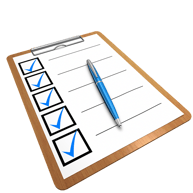 All writers make mistakes. Some writers aren’t the best with punctuation, while others struggle with pronouns and hyphens. Know the mistakes you are more inclined to make so that you can fix them before submitting or publishing your work. Below are some common mistakes writers make, and how you can avoid them.
All writers make mistakes. Some writers aren’t the best with punctuation, while others struggle with pronouns and hyphens. Know the mistakes you are more inclined to make so that you can fix them before submitting or publishing your work. Below are some common mistakes writers make, and how you can avoid them.
Run-On Sentences
A run-on sentence attempts to link two independent clauses without punctuation or conjunctions.
Examples:
Incorrect: My boss gave me a raise she said it was due to my performance.
Correct: My boss gave me a raise. She said it was due to my performance.
The easiest way to fix a run-on sentence is to separate the two clauses into distinct sentences. You can also use punctuation or conjunctive adverbs, or coordinating conjunctions, to break apart the independent clauses.
Comma Splices
A comma splice is like a run-on sentence, but uses a comma to attempt to link two independent clauses.
Examples:
Incorrect: Bob had a hammer, it had a yellow handle.
Correct: Bob had a hammer, and it had a yellow handle.
To fix a comma splice, you can sometimes insert a semicolon after the first independent clause, or delete the comma and insert a conjunction (e.g., “and,” “after,” etc.) after that comma. You can also create two distinct sentences from the independent clauses.
Misplaced Hyphens
Hyphens are often used to create compound adjectives.
Examples:
- fire-proof
- long-term
If the compound adjective comes after the noun it is modifying in a sentence, then most style guides call for no hyphenation. AP, though, calls for hyphenating even after the noun.
Example: The firefighter’s suit was fire proof.
Check your designated style guide or dictionary for commonly used hyphenated terms and words if you’re in doubt. Some words include a hyphenated prefix (e.g., “ex-boyfriend”). And some style guides require numbers between twenty-one and ninety-nine to be hyphenated.
Pronoun Errors
To avoid pronoun errors, remember that pronouns must agree in number with the nouns to which they refer. If the noun is singular, the pronoun must be singular. If the noun is plural, the pronoun must be plural.
Examples:
Incorrect: Yours shoes are dirty.
Correct: Her shoes are dirty.
Could/Would/Should Of
It’s common to write “could of,” “would of,” or “should of” instead of “could have,” “would have,” or “should have.” This often happens because when someone says “could’ve” (the contraction for “could have”) aloud, for example, it sounds like “could of.” However, “of” should never be used after “could,” “would,” or “should” in a sentence. Remember that it’s always “could have,” “would have,” or “should have,” or their respective contractions “could’ve,” “would’ve,” and “should’ve.”
Misused and Overused Apostrophes
Apostrophes are used to indicate possession or to create a contraction out of two words. They are almost never used to make a word plural.
Examples:
Incorrect: The wolve’s are in the forest.
Correct: The girls’ horses ran in the race.
Whenever in doubt, remove the apostrophe from the word to see if it can be replaced with two separate words and still make sense (e.g., “didn’t” becomes “did not”). Or determine if the word is no longer possessive once you remove the apostrophe. Rare cases for using an apostrophe to indicate plural include “mind your P’s and Q’s” and “always dot your i's.”
“Alot” vs. “A lot”
It’ll be easy to never make this mistake again. Simply remember that “alot” is not a word. “Allot” is a word, but has an entirely separate meaning from “a lot.”
Disagreeing Subjects and Verbs
Sentences must have subjects and verbs that agree in number.
Examples:
Incorrect: Cindy walk to the festival.
Correct: Cindy walks to the festival.
To avoid this mistake, verify that your subjects and verbs agree in number. If the subject in a sentence is singular, the verb must also be singular. And if the subject is plural, make sure the verb is also plural.
If your writing is filled with grammatical errors and misspelled words, it’ll be difficult for your readers to get through and understand. Keep this list nearby to help you avoid these common mistakes while you’re writing.




